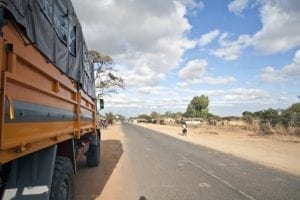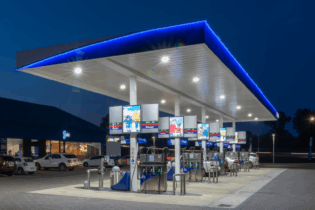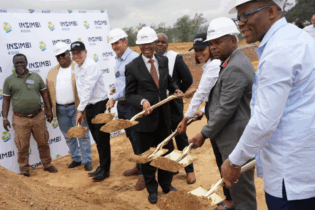The International Road Transport Union (IRU)’s iOS and Android TRANSPark application has been upgraded to include new functions that make it more useable.
The IRU continues to work with key regional players, like FESARTA, to make sure important content is added to the service. As a result, the app now provides more services to drivers and managers in Africa. This is vital as truck stops in Africa vary greatly in quality, are separated by vast distances and face differing security challenges and threats. In many areas, knowing where to find a secure parking area is as important in Africa as it is anywhere in the world. This year, the IRU has added new key data to the service, such as border posts, police checkpoints, weighbridges, and the location of roadside wellness clinics. This information should help drivers and transport operators in the region better plan their routes and enable them to access key health and wellness services, test for malaria and other illnesses, and obtain condoms. FESARTA, the Southern African Development Community (SADC) and the IRU are all working to develop operational standards for Africa’s truck stops, accrediting facilities that meet certain security and comfort standards. These premier locations are then added to the app.While still largely unpaved, road infrastructure in Africa is steadily improving. There are a handful of truck stops that are already providing services on par with anything you would find in Europe. We are really proud to work with governments and regional economic communities to help develop quality infrastructure that meets and even exceeds global trucking standards.
At least 95% of the surface movement of goods is undertaken by road in most sub-Saharan countries in Africa, so there is a huge, ever-increasing demand for professional trucking services. As assessed in 2001, the road infrastructure in Southern Africa is comparatively strong. Botswana, Lesotho, and Namibia have particularly good road standards; similarly, two-thirds of the road network of South Africa and Zimbabwe remain in good condition. However, road maintenance has been neglected in Angola and Mozambique, where 90% of roads are deemed fair to poor in condition. Yet, certain key locations are still missing road links, disabling road transport along vital corridors. These missing links lie predominantly in Angola and the Democratic Republic of Congo – a substantial concern due to SADC member states’ large extractive industries that rely heavily on roads to facilitate trade. Although traffic volumes are low, these two member states need new roads constructed alongside the necessary repairs to damage caused by conflict and neglect. The cost of road maintenance remains an issue for the region as a whole. While member states recognise the importance of a functional, integrated road network, funding is often diverted into other sectors. Likewise, significant funds have previously been put into the road network, but were inefficiently managed by governments in many member states. With traditional top-down approaches to funding for repairs and construction proving ineffective, SADC is currently exploring new systems of funding, including public-private partnerships and user-pays principles.






